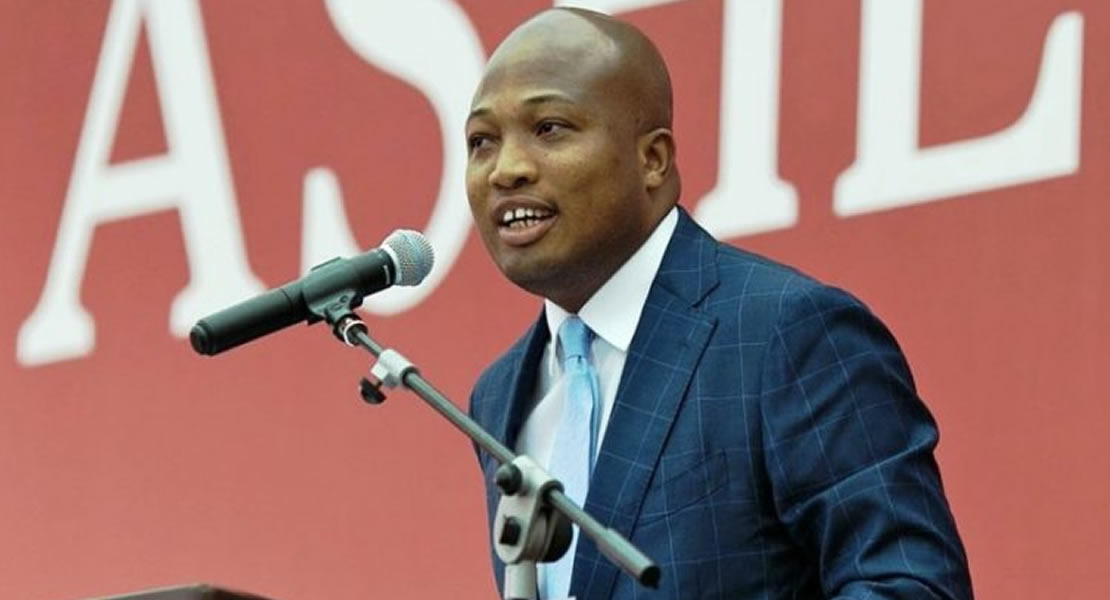
A Deputy Minister of Education (In charge of Tertiary) and Member of Parliament for North Tongu, Mr. Samuel Okudjeto Ablakwa is demanding an immediate halt to the sudden drifting from what he referred to as “peace industry during the election petition to an electoral reform industry after the August 29 judgment” of the landmark case.
According to the Deputy Minister, those who channeled their energies towards crusading for peace before the election petition verdict, instead of calling for serious public debate on the need for radical reforms in sectors of the Ghanaian economy that impact directly on the lives of Ghanaians, have suddenly changed direction to a new venture and are now championing for reforms in the country’s electoral system.
This superfluous reform crusade, Mr. Ablakwa said is not only undermining the globally acclaimed and cherished electoral system of the country, it is also leading to unconstitutional demands from the opposition New Patriotic Party and their surrogates like the Alliance for Accountable Governance (AFAG) who are demanding a resignation of the Electoral Commission Chairman, Dr. Kwadwo Afari Gyan.
In an exclusive chat with The Al-Hajj on Monday, the North Tongu MP stated that “the unconstitutional call by AFAG for the resignation Dr. Afari Gyan as if he is an appointee of the President takes its root from the ‘reform industry’ crusade by the same people who were heard calling for peace ahead of the Supreme Court ruling on the election…I want to be engaged in serious public discussions on reforms in our educational sector, housing, health and road sectors, instead of this needles calls for electoral reform.”
Since it is public knowledge that the EC has after every election since 1992 made some changes in the country’s electoral system, Mr. Ablakwa said, he finds it strange that people have embarked on an “unnecessary reform project as if the last election was the first election the EC had conducted and the Commission has not done any reform in its existence…we must stop this and focus our attention to other serious things.”
The Deputy Minister said, he sees the demand for electoral reforms untenable, adding “the petitioners did not go to court to seek reforms; in fact that was not part of their claims…per their claims, what they sought to tell the court was that, they agree with the electoral process but some aspects of it was breached in the last election…if not why will they have called for a cancellation of votes to declare Nana Akufo-Addo president if the electoral systems was as porous as they want as to believe?” he asked.
After the August 29 judgment of the election petition which the NPP lost, there have been calls by several individuals, organizations and groups for radical reforms in the country’s electoral system to the extent that the NPP and its appendage pressure groups have gone further demanding the resignation of the EC boss, Dr. Afari Gyan even before his constitutionally guaranteed retirement age.
According to the deputy Education minister, to the extent that the Executive Director of the Institute of Democratic Governance (IDEG), Dr. Emmanuel Akwetey “as part of the craze for electoral reforms recommended the need for the involvement of IPAC in the selection of a new Chairman of the Commission after Dr. Afari Gyan retires”.
Rejecting such a suggestion, Mr. Ablakwa said the recommendation by the IDEG Executive Director was a clear violation of articles 42 and 70 (2) of the 1992 constitutions which talks about the mode for appointment of Chairpersons of the EC.
He added that instead of this calls, civil society groups and religious bodies interested in the development of the country must focus their attention to calling for reforms in areas like the admission of students into the nation’s medical schools, which he said is facing serious challenges when it comes to intakes.
Citing the Medical School at the Kwame Nkrumah University of Science and Technology, the Deputy Minister stated that, out of a total 470 students who had grade ‘A’ and qualified to be admitted into the medical school, the school can only absorb 70 due to lack of space.
“This is what must attract our attention…we have to call for reforms in those areas, we need to train more doctors to fight the difficulties we are facing in the health sector when it comes to doctor to patient ratio which ours does not meet the WHO standard,” he noted.
Al-Hajj Newspaper